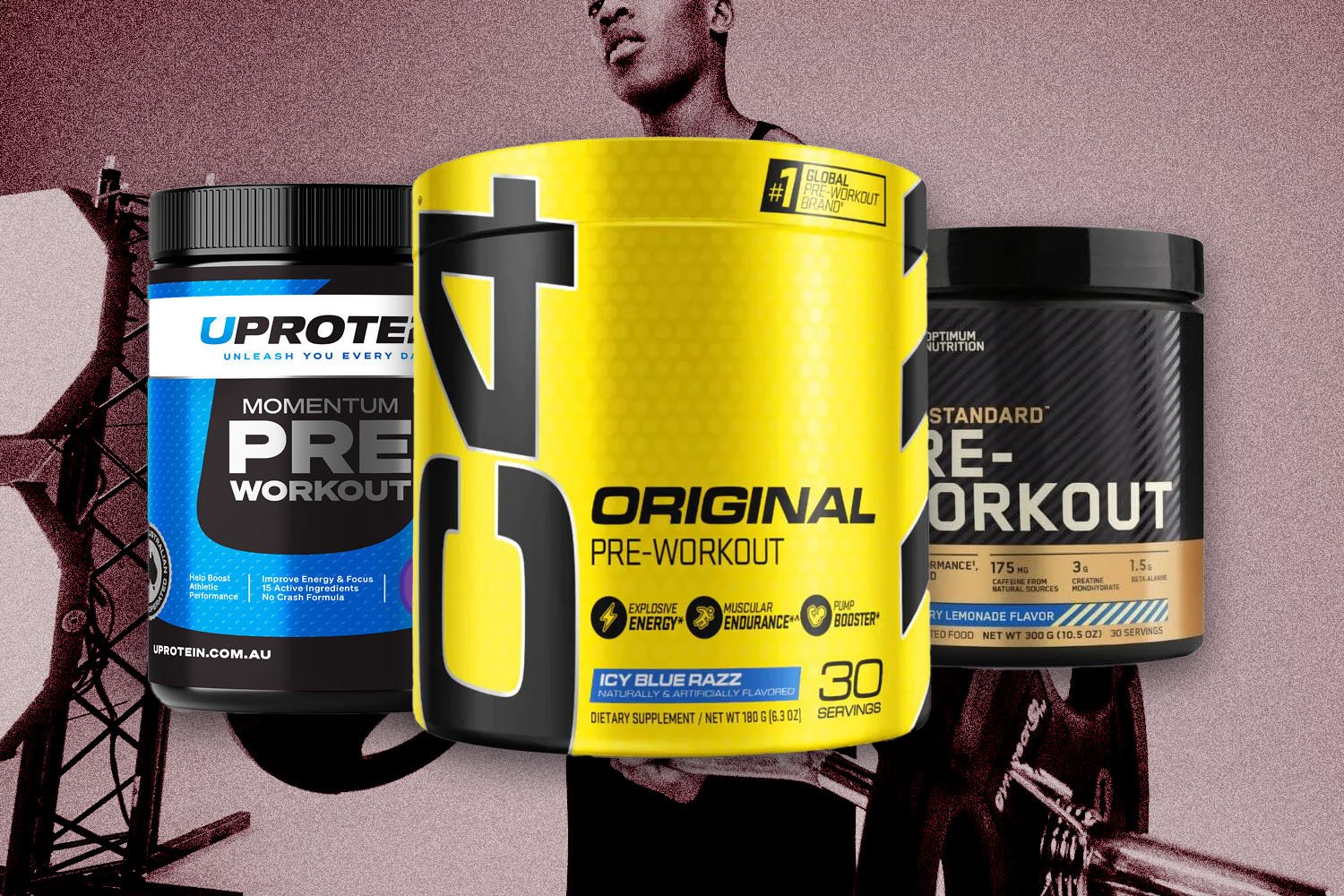Horace Skincare Review: Why Horace Is Dominating The Modern Man’s Bathroom Cabinet
Feb 21, 2026Do’s & Don’ts Of Pre-Workout: When & When Not To Take It
- Jan 6, 2025
- 0 Comments
1966

Like any supplement, pre-workouts are often the subject of debate. So when is it actually safe and recommended to take it?
A pre-workout is a supplement you can take before your workout to deliver an extra burst of energy, boost strength, and enhance mental focus. They contain a mixture of a mixture of caffeine, amino acids, creatine, beta-alanine, and other stimulants designed to improve performance and delay fatigue.
Certain risks have been identified with pre-workout supplements, including elevated blood pressure, increased heart rate, and possible stomach irritation. Aside from these potential risks, there are times when taking a pre-workout may not be necessary – or may even hamper your progress.
Pros and Cons of Taking Pre-Workout for Cardio
How effective pre-workout supplements are can vary hugely based on what type of cardio you’re doing. Here’s a deep dive into the pros and cons of pre-workout for various kinds of cardio:
Pre-Workout for Walking
For low-intensity exercises or activities like walking, a pre-workout supplement might not have much of an effect. Walking is primarily powered by steady energy, not bursts of power or endurance, which is why a pre-workout loaded with caffeine doesn’t do much. However, lower-stim formulations with added amino acids can provide a gentle lift without overloading your body.
Pre-Workout Before Running
When hitting the road for a longer run, stamina and concentration are key, which is where pre-workout supplements may have a place. Others provide workout-enhancing activity-specific ingredients, such as beta-alanine and caffeine for endurance, or electrolytes in some formulas to keep the body hydrated. However, runners should steer clear of pre-workouts with too many stimulants, which can raise heart rate and cause discomfort or dehydration.
Best Pre-Workout for Cycling
Long-distance or interval-training cyclists can benefit from pre-workouts that support sustained energy release. Creatine, amino acids, and moderate levels of caffeine will work well in these formulas designed to enhance endurance and recovery. But like runners, cyclists should keep track of their response to stimulants, which can increase heart rate or upset the stomach.
Pre-Workout for HIIT
HIIT workouts require explosive bursts of energy followed by a fast recovery, so pre-workouts can be an extremely beneficial addition to a HIIT workout. This is why stimulant-heavy formulations can boost performance, increasing focus, strength, and energy during short bouts of intense activity. The best pre-workout for cardio involving HIIT training will include ingredients like beta-alanine and creatine, which buffer lactic acid and promote power output. That being said, care should be taken with too many stimulants, as this can lead to jitters or overexerting yourself in the intervals.
WATCH: According to Ron Jones (@bigronjones), a health and wellness personal trainer with more than 15 years of experience, you shouldn’t take a pre-workout before a cardio workout.
In a viral video, Ron says a friend told him he does, in fact, take a pre-workout before his cardio workout. Ron questions the logic of using pre-workout before cardio, as he believes stimulants are more suited for anaerobic activities that rely on muscle strength.
He explains, “I use pre-workout to facilitate a pump. That’s because I’m going to be doing anaerobic activity, which means I’m going to be using my muscles. Aerobic activity is just using my cardiovascular, there’s no need to facilitate additional blood flow for that. Not to mention, I don’t want to have additional caffeine in my system before I intentionally raise my heart rate.”
The video received hundreds of comments, but one sticks out in particular, and Ron even posted a follow-up video quoting it. The user said, “Had a buddy feel like he was going to die after taking pre-workout before a two-mile sprint in the army. Says a lot about that.”
Ron concluded his follow-up video with this message: “Stop using pre-workouts before your cardio. Pre-workouts are designed for anaerobic activity, while cardio is aerobic activity. The caffeine involved with pre-workouts can actually elevate your blood pressure. You don’t want to raise your blood pressure before you elevate your heart rate.”
While Ron Jones advises against using pre-workout for cardio, it’s important to consider what scientific research reveals about the supplement’s impact.
A 2010 study conducted by Smith et al. and published in the Journal of the International Society of Sports Nutrition looked at the “effects of a pre-workout supplement containing caffeine, creatine, and amino acids during three weeks of high-intensity exercise on aerobic and anaerobic performance.”
The study ultimately found “an increase in VO2 max, training volume, and lean muscle mass in participants who used pre-workout before completing HIIT workouts.” This suggests that taking a pre-workout before high-intensity cardio workouts may improve performance.
A 2012 study published in the Journal of Nutrition & Metabolism wanted to examine “the effects of the pre-workout supplement Assault on upper and lower body muscular endurance, aerobic and anaerobic capacity, and choice reaction time in recreationally-trained males.”
Participants were split into two groups: one took a pre-workout supplement before exercise, and the other took a placebo. The group who took the pre-workout “significantly improved agility choice reaction performance and lower body muscular endurance while increasing perceived energy and reducing subjective fatigue.”
DMARGE reached out to Advanced Sports Dietician Jess Spendlove to get her take on whether it’s safe or recommended to take a pre-workout before cardio sessions. Jess emphasized that “the goal and duration of the session determine if someone should have something before they train.”
“If they are training for performance – to improve their fitness – and the session is 45-60 minutes or more, then, yes, they should take something.”
Jess Spendlove
While she recommends people take “something” before they train, she says this doesn’t necessarily need to be a pre-workout supplement.
“Consuming carbohydrates before training is the ideal source, and in doing so, be they high or low GI, it will increase blood sugar levels, as that is the body’s natural response to ingesting them. If someone is working at a high intensity and aiming for performance improvements, it would benefit them to do so.”
“Pre-workouts (in a supplement form) are not necessary, but ingesting pre-workout nutrition before a gym session can be beneficial to help again with the performance in the session. If you want to gain lean mass, I recommend consuming some carbohydrates and protein before the session.”
“Overall intake and distribution are important when it comes to protein, but if you are training fasted (i.e., first thing in the am) and it’s been 10-12 hours since your last meal with protein, having something prior might be beneficial – for example, fruit & yogurt.”
The takeaway from all this? A pre-workout may boost your performance when doing high-intensity cardio exercise. However, it does not replace smart whole-food nutrition before your workout. Humans operate best on whole food, so if you can, you should get your pre-workout nutrition in that form.
Timing and Dosage Recommendations
To get the most from your pre-workout supplements, you should pay attention to timing and dosage:
How long before your workout should you take pre-workout? As a rule of thumb, pre-workouts are usually taken 20-30 minutes prior to your workout so that the active ingredients have time to enter your bloodstream and begin to have an effect.
How much pre-workout should I take? Always adhere to the manufacturer’s instructions regarding serving size. For novices, starting off with half the recommended dose can help you gauge your sensitivity to the stimulants and other ingredients.
How often should you take pre-workout? Use pre-workout supplements on those days when you could use a little extra pep for tough workouts. Ongoing regular use can result in a tolerance; the same product used a few times per week can limit effectiveness, so it’s worth limiting to 3-4 times per week.
Can You Take Pre Workout on an Empty Stomach?
Hitting the gym first thing in the morning is a favourite for many, so it’s very natural to ask whether or not taking pre-workout on an empty stomach is a good idea.
It is well possible to take a pre-workout immediately in the morning on an empty stomach. The bright side is that the absence of food means that the exercise products will be taken in faster, so you could feel energized more quickly. But it can also lead to an upset stomach, nausea, or jitters. It may also cause your blood sugar to drop, which can leave you feeling tired and woozy.
The stimulants in pre-workouts can hit heavier on an empty stomach, creating a potential overreaction like an accelerated heart rate or anxiety. Beta-alanine is another common ingredient, and it can cause a tingling sensation (paresthesia) that may feel even stronger when consumed without food.
Others may notice that they can achieve a clean energy boost when taking pre-workout on an empty stomach, so they do not experience that sluggish feeling in the gym after eating. Athletes, especially those training for fat-burning workouts, might also favour fasted workouts, so the pre-workout helps provide the necessary energy without interfering with the fast.
To avoid any adverse effects, you might want to start with a low dose to see how your body reacts. Taking your pre-workout with a light snack, like a banana or a piece of toast, will help combat nausea or jitters for added energy without all the side effects.
Overall, taking a pre-workout supplement on an empty stomach is safe and can be effective for some people, just be sure to pay attention to your own needs and adjust accordingly. You can then turn it into a regular practice if it enriches your session. But if you find that you feel uncomfortable, adjusting the timing or taking it with a small snack can help immensely.
When Should You Not Take Pre-Workout?
Pre-workouts can have many benefits, but there are some situations where it is best not to take them:
- Late At Night: Most pre-workouts contain stimulants (e.g., caffeine), which can impact sleep when taken late at night. Poor sleep interferes with recovery and performance.
- Specific Health Conditions: You should avoid pre-workouts or consult a healthcare provider if you have heart conditions, high blood pressure, or are sensitive to stimulants.
- Low-Intensity Activities: Whether it be going for a walk or doing some light yoga, you generally won’t need the energy boost from pre-workouts, and it can leave you feeling jittery or uncomfortable.
- On Rest Days: If you’re taking pre-workout on days you’re not training, you could overuse those stimulants, meaning when you actually need them, they’re less effective.
- Pregnancy or Nursing: Pregnant or nursing women should not take pre-workouts without consulting a physician since the stimulants could be unsafe for the baby.
Pre-workout for Other Activities
Pre-workout supplements tend to be associated with high-energy workouts—such as weight training or vigorous cardio—but they can also improve nontraditional exercise, like yoga, Pilates, and walking. Here’s a closer look:
Pre-Workout Before Yoga
While yoga centres around mindfulness, flexibility, and balance, certain pre-workout supplements could help take your practice to the next level. Low-stimulant or stimulant-free pre-workouts containing things like amino acids and electrolytes can make you feel alert, improve your endurance, and help you stay hydrated without the jolt of energy that might get you too hyper for a more chill session.
Stay away from high-caffeine formulas, as they tend to get you wired, making it harder to relax and breathe to keep in the peace.
Pre-Workout Before Pilates
Pilates requires core strength, control, and precision, so you want to have the energy and mental clarity to go through with the activity. A moderate dose of caffeine, creatine, or beta-alanine can improve overall strength and tissue endurance with a pre-workout. However, avoid highly stimulant-based formulas as they can fight against the controlled movement and focus needed to do Pilates.
Safety and Side Effects
As with any supplement, it’s essential to be aware of the potential side effects of pre-workouts and use them responsibly. Common side effects include:
- Increased Heart Rate: High doses of caffeine and other stimulants can lead to rapid heartbeats or palpitations, especially in those sensitive to these ingredients.
- Elevated Blood Pressure: Pre-workouts may temporarily raise blood pressure, making them unsuitable for individuals with hypertension.
- Digestive Issues: Ingredients like creatine, beta-alanine, or artificial sweeteners can cause bloating, cramps, or an upset stomach in some users.
- Tingling Sensations: Beta-alanine often causes a harmless tingling or flushing sensation on the skin, which some may find uncomfortable.
- Sleep Disruption: Consuming pre-workouts late in the day can interfere with your sleep due to their stimulant content.
Science Behind Pre-Workout and Cardio Efficiency
Studies indicate that ingredients like caffeine and beta-alanine found in pre-workouts can improve performance in endurance-based cardio exercises such as running and cycling. Key findings include:
Enhanced Endurance: Certain ingredients, like caffeine and beta-alanine, have been shown to reduce fatigue and enhance stamina, helping athletes to endure longer durations of exertion. [1][2]
Enhanced Focus: Stimulants in pre-workouts help sharpen mental clarity, making it easier to maintain pace during long runs or rides.
Energy Efficiency: Research indicates that moderate amounts of caffeine may enhance the body’s ability to use fat as an energy source during aerobic exercise. [3]
Key Take-Aways
- HIIT cardio workouts and weight training benefit the most from a pre-workout; lower-intensity efforts such as walking or yoga are better without supplementation.
- Pre-workouts can cause side effects, including increased heartbeat, high blood pressure, upset stomach, and trouble sleeping.
- Pre-workouts should be consumed 20-30 minutes before workouts with a moderate dosage. Using them too much can lead to tolerance, decreasing how well they work.
References
[1] Saunders B, Elliott-Sale K, Artioli GG, Swinton PA, Dolan E, Roschel H, Sale C, Gualano B. β-alanine supplementation to improve exercise capacity and performance: a systematic review and meta-analysis. Br J Sports Med. 2017 Apr;51(8):658-669. doi: 10.1136/bjsports-2016-096396. Epub 2016 Oct 18. PMID: 27797728.
[2] Matsumura T, Tomoo K, Sugimoto T, Tsukamoto H, Shinohara Y, Otsuka M, Hashimoto T. Acute Effect of Caffeine Supplementation on 100-m Sprint Running Performance: A Field Test. Med Sci Sports Exerc. 2023 Mar 1;55(3):525-533. doi: 10.1249/MSS.0000000000003057. Epub 2022 Oct 13. PMID: 36251383; PMCID: PMC9924959.
[3] Cameron M, Camic CL, Doberstein S, Erickson JL, Jagim AR. The acute effects of a multi-ingredient pre-workout supplement on resting energy expenditure and exercise performance in recreationally active females. J Int Soc Sports Nutr. 2018 Jan 5;15:1. doi: 10.1186/s12970-017-0206-7. PMID: 29311763; PMCID: PMC5755346.
Publisher: Source link







